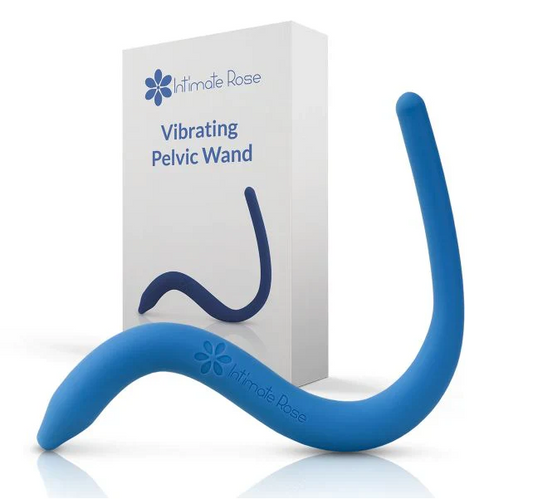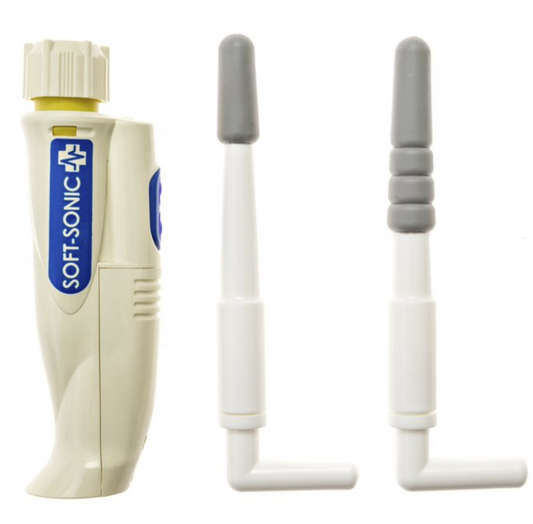
Do Women Have a Prostate?
Share
Women do not have a prostate gland like men, but they do have a counterpart known as the Skene’s glands. These are small structures located near the front vaginal wall, positioned on either side of the lower end of the urethra.
The Skene’s glands are sometimes called the female prostate because they serve similar functions and develop from the same tissue. They can also produce fluid and may cause symptoms that are similar to prostate issues in men.
Understanding these glands can help explain certain health concerns and guide when to seek medical advice.
In this article, we’ll look at how Skene’s glands work, how they relate to the male prostate, and why they matter for women’s health.
What Is the Male Prostate?
The male prostate is a walnut-sized gland that sits below the bladder, wrapping around the urethra while playing a crucial role in male reproductive health.
This gland produces seminal fluid that nourishes and protects sperm, while creating prostate-specific antigen (PSA).
PSA levels in the blood are important diagnostic markers that doctors use to screen for prostate issues, including inflammation, enlargement, or cancer.
Unfortunately, men face mounting prostate-related health challenges as they age.
One of the most prevalent conditions is benign prostatic hyperplasia (BPH), which affects nearly half of men over 50. Even more concerning, prostate cancer will impact one in eight men at some point in their lives.
With numbers like these, it’s no surprise that prostate health is a major topic in men’s wellness.
What Are Skene's Glands and How Do They Compare to the Prostate?
Skene’s glands, also known as the paraurethral glands, are small but significant structures often referred to as the female prostate. They sit on either side of the urethral opening, tucked into the front wall of the vagina.
Their location and function can be traced back to early fetal development. During this stage, both male and female embryos start with the same urogenital tissue.
In males, this tissue develops into the prostate gland. In females, it becomes Skene's glands. This shared origin helps explain why the two structures have similar roles in the body.
As part of the female reproductive system, Skene’s glands contribute to several important functions. They create essential lubrication during sexual arousal, ensuring comfortable intimacy.
In addition, researchers believe these glands may also be involved in female ejaculation. A study published in the National Library of Medicine suggests that Skene’s glands release antimicrobial secretions into the urethra during sexual activity. This natural defense may help lower the risk of urinary tract infections (UTIs), particularly those caused by intercourse.
What makes Skene’s glands even more fascinating is their chemical activity. They produce PSA, the same prostate-specific antigen found in men. They also manufacture acid phosphatase, an enzyme commonly linked to prostate function.
These biochemical similarities are a key reason why scientists often refer to Skene’s glands as the "female prostate."
While the male prostate weighs about 20 grams, Skene’s glands typically weigh less than 5 grams combined. This smaller size may explain why they receive less medical attention, even though their role in female health is far from minor.
Common Conditions Affecting Skene's Glands
Despite their small size, Skene's glands can develop various medical conditions that significantly impact women's quality of life. Understanding these problems empowers women to recognize symptoms early and seek appropriate care.
Infections (Skenitis)
Skenitis is the most common condition affecting the Skene’s glands. It happens when the glands become inflamed, usually due to a bacterial infection.
Women experiencing Skenitis often notice pain during urination, persistent pelvic discomfort, and unusual discharge that doesn't respond to typical treatments.
This condition frequently accompanies urinary tract infections since bacteria can travel between these interconnected areas.
Cysts and Abscesses
Cysts and abscesses develop when tiny gland ducts become blocked, trapping fluid inside. While small cysts may remain symptom-free, larger ones create increasing pressure and discomfort.
More seriously, abscesses demand immediate medical attention because they can spread infection to surrounding pelvic tissues.
PCOS and Hormonal Effects
Polycystic ovary syndrome (PCOS) may indirectly affect the Skene’s glands through widespread hormonal imbalances.
Since hormones influence glandular function, women with PCOS might experience changes in how their Skene's glands operate, though research in this area continues evolving.
Female Urethral Adenocarcinoma
The most concerning condition involving the Skene’s glands is female urethral adenocarcinoma. This is a rare but aggressive cancer that starts in the ducts or glands. Doctors sometimes call it "female prostate cancer" because of the strong similarities between Skene’s glands and the male prostate.
According to a 2023 study published in MDPI, this cancer represents approximately 0.003% of all female genital cancers, with fewer than 30 cases documented globally.
Despite being rare, the symptoms can be serious. These may include pelvic pain, unusual bleeding, trouble urinating, or a lump near the urethra. If any of these symptoms persist, it's important to see a doctor.
Doctors use imaging tests, biopsies, and PSA testing to diagnose the condition. Since Skene’s glands can produce PSA, high levels in women may be a warning sign.
Treatment often follows prostate cancer methods, such as surgery, radiation, or chemotherapy.
From Female Anatomy to Male Wellness
Skene’s glands help us understand why prostate health matters. Like these glands support women, the prostate supports men’s urinary health, hormone balance, and overall well-being. Taking care of it early can help prevent problems and protect long-term health.
That’s why having the right tools makes all the difference.
Our patented, doctor-developed Sonic Prostate Massager helps improve circulation, ease pressure, and support natural drainage—all from the comfort of home. It's safe, non-invasive, and easy to use.
For added support, pair it with Ultra Prostate Health Formula. This daily supplement contains 11 key ingredients like Saw Palmetto, Pygeum, and Stinging Nettle Root to help balance hormones, reduce inflammation, and support urinary health. It’s non-GMO, gluten-free, and comes in easy-to-absorb softgels.
Order now and take control of your prostate health today!




